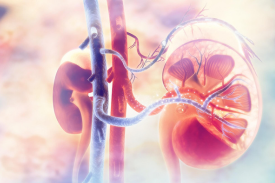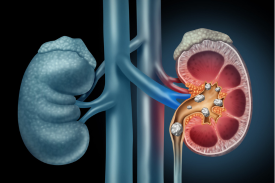Bladder cancer is a type of cancer that starts in the bladder, the organ responsible for storing urine in the human body. The bladder is a muscular sac located in the pelvis, and it is lined with cells that can become cancerous. When these cells grow uncontrollably, they can form a tumor in the bladder. Bladder cancer is one of the most common types of cancer that affects the urinary system, and it can be either non-invasive or invasive.
Non-invasive bladder cancer, also known as superficial bladder cancer, refers to cancer that is confined to the lining of the bladder and has not spread to other parts of the body. Invasive bladder cancer, on the other hand, refers to cancer that has spread beyond the bladder lining into the muscle wall of the bladder. Invasive bladder cancer is a more serious form of the disease and is often harder to treat.
Symptoms of bladder cancer include frequent and painful urination, blood in the urine, lower back pain, and pain during sexual intercourse. If you experience any of these symptoms, it is important to see a doctor for a proper diagnosis. In some cases, bladder cancer may not cause any symptoms at all and may be detected during a routine screening or exam.
There are several risk factors that increase a person’s chances of developing bladder cancer, including smoking, exposure to certain chemicals, having a family history of bladder cancer, and having a personal history of bladder or urinary tract infections. People who are over the age of 55 are also more likely to develop bladder cancer.
To reduce your risk of developing bladder cancer, there are several steps you can take. Firstly, quitting smoking is one of the most important steps you can take to reduce your risk of bladder cancer. Second, avoiding exposure to certain chemicals, such as those found in certain industrial and consumer products, can also help reduce your risk. Third, maintaining a healthy diet that is rich in fruits and vegetables can also help reduce your risk of bladder cancer. Finally, having regular check-ups and screenings can help detect bladder cancer early, when it is most treatable.
In terms of treatment, the approach to bladder cancer depends on the stage and type of the cancer. Superficial bladder cancer can often be treated with medication or with a procedure known as a transurethral resection of the bladder tumor (TURBT). Invasive bladder cancer, on the other hand, may require a more aggressive treatment approach, such as surgery to remove the bladder, radiation therapy, or chemotherapy.
In conclusion, bladder cancer is a serious condition that affects a significant number of people every year. By being aware of the risk factors and taking steps to reduce your risk, you can help protect yourself against this disease. If you experience any symptoms of bladder cancer, it is important to see a doctor as soon as possible for a proper diagnosis and treatment. With early detection and proper treatment, many people with bladder cancer are able to achieve a full recovery and return to their normal lives.




